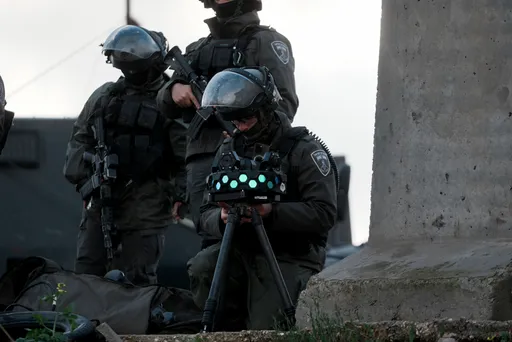When Shusha hosted the Global Media Forum’s three-day conference from July 21, it marked a momentous occasion for the city known as the “crown jewel of Karabakh”, also identified as the historic cultural capital of Azerbaijan.
The three-day conference under the title ‘New Media in the 4th Industrial Revolution’ saw the confluence of 250 representatives from 120 media entities from 50 countries, including leading international broadcasters such as TRT World and Al Jazeera.
The symbolism was not lost on anybody – a prestigious global event taking place in the middle of the liberated territories of Karabakh, previously occupied by Armenia for three decades.
When Shusha fell to Armenia’s occupying forces in May 1992, it constituted a collective trauma for the Azerbaijani people.
Another damaging blow occurred when, merely months before the 44-day war, secessionists of the self-declared “Nagorno-Karabakh Republic” (NKR) decided to move their capital from Stepanakert to Shusha, a decision that was not implemented because of their subsequent defeat.
On the other hand, Shusha is also the name of the declaration that illustrates the motto, “One nation, two states”.
Türkiye and Azerbaijan signed a collective defence pact in June 2021, underlining the deep historical and cultural connections between the two countries.
This agreement took bilateral military relations to new heights, greatly enhancing Baku’s military capabilities and leading to the 2020 victory that re-established Azerbaijan’s sovereignty and territorial integrity.
A devastating occupation
Choosing Shusha as the location of the Global Media Forum was highly symbolic.
Before the occupation, the city hosted dozens of museums, several secondary and higher education institutions, schools, and libraries. The occupying forces annihilated all these cultural assets.
Armenian forces engaged in systematic vandalisation and destruction of various cultural heritage sites, including the desecration of Muslim and Azerbaijani graves.
Such practices, reminiscent of the Nazi regime and the Bosnian Serbs during the 1990s, were aimed at erasing the living and dead from the territory.
This “ethnic cleansing” campaign was part of an overall genocidal strategy destined to sustain the occupiers’ propagandistic discourse and convey an imagined history that expunges the predominant Azerbaijani presence over its territory.
While these vile actions amount to crimes against humanity, the prevailing double standards in the United Nations Security Council (UNSC) and the meek and dysfunctional international justice system have made recourse to those instruments futile.
Azerbaijan is winning the battle
President Ilham Aliyev understood that prevailing militarily on the battlefield is only half the equation.
The other half is to win the battle for reconstruction. Therefore, he mobilised the state resources to initiate the mammoth task of rebuilding long-lost buildings—even entire neighbourhoods in the previously occupied territories, including Shusha.
Various agencies are racing against the clock to build airports, highways, housing units, hotels, schools, medical facilities, and cultural heritage sites.
During the Shusha event, I had the chance to ask President Ilham Aliyev about the reconstruction plans.
His comprehensive answer revealed a holistic blueprint encompassing various economic, social, cultural, and urban design facets.
Ultimately, Shusha will regain its former glory and become again a significant cultural and tourist centre able to attract not only its former displaced residents but also scores of tourists as well as professional and business-related events attracted by the beautiful and serene surroundings.
What’s more, the President’s prioritisation of the reconstruction effort is not just about constructing buildings. It is a major healing exercise and psychological boost for the population.
It is intended to cure national trauma and drive out feelings of fear and frustration as necessary prerequisites to restoring national pride.
Importantly, Azerbaijan has been able to claim the moral high ground.
While the Armenian occupiers desecrated graves of Azerbaijani nationals and vandalised places of worship, Baku has initiated the restoration of a major Armenian church in Shusha.
Moreover, even when Baku was within its right to retrieve its territories as it operated within the international law framework, it continued pursuing a self-restraint policy and open dialogue.
Such policies earned the country the respect of many international observers.
Spoiling attempts
For decades, the Armenian side ignored the UN and international law and obstructed the various attempts at conflict resolution made by the Minsk Group and others.
Now that the reality has changed, they resort to different tactics, including self-imposed blockades, to claim victimhood and get international support.
Worse, the Armenian officials continue to adopt contradictory positions, declaring, on the one hand, that they respect Baku’s sovereignty over Karabakh but cast doubts over the same sovereignty by requesting international presence and mechanisms, which, de facto, deny the premises of Baku’s authority.
This flip-flopping is compounded with threats of war, as illustrated by the Armenian Prime Minister’s recent interview.
The Azerbaijani leadership has proven to be astonishingly adept at handling the intricacies of war and peace.
The Armenian attempts at creating ‘storms in a teacup’ will not affect the situation. Azerbaijan’s retrieval of its territories is a done deal. This ship has sailed.
It would be much more productive for the Armenian side to move on and work together with Azerbaijan and other forces in the region to ensure peace and benefit from the dividends of shared economic prosperity and interconnectedness.























